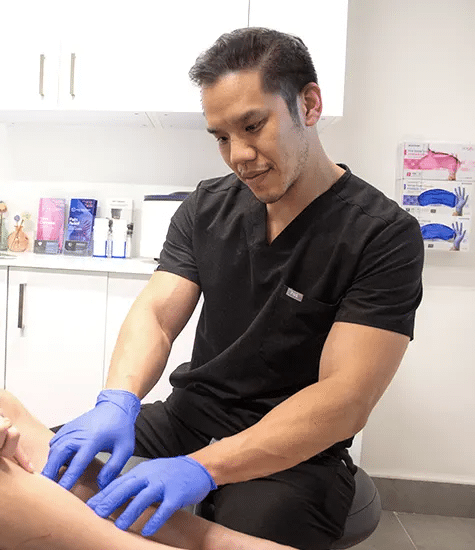The human body has a vast network of veins that help carry blood from all organs to the heart. The veins in our legs and face have the most work to do as they are the furthest away from the heart. Veins on the legs have to pump blood against gravity, making their job even tougher.
To prevent blood from flowing back into the legs, veins have valves that close if blood tries to flow backward. But over time, some valves may weaken. When this happens, blood may get collected in the veins, straining against the walls of the veins. This is what causes vein diseases.
A poor, unbalanced diet can also lead to obesity. Carrying excessive weight in the body can make it harder for the veins to pump blood up the legs against gravity. This can lead to the valves in the veins weakening and increase the risk of developing spider and varicose veins. A diet that is high in salt can increase your blood pressure and add to the strain on your veins.

Foods to avoid to prevent vein diseases:
- Saturated Fats
Some of the tastiest foods are high in saturated fats: butter, ghee, cheese, the fatty parts of meat, cakes, and sausages, to name a few. Unfortunately, saturated fats are bad for you. Excess consumption of saturated fats can cause a build-up of fat inside veins. This makes the veins narrower and makes it harder for the veins in your legs to push blood against gravity up to the heart. This increases the risk of all kinds of vein diseases such as spider and varicose veins, venous insufficiency, and even blood clots.
- Sugars
Consuming high amounts of sugar can interfere with the circulatory system. Too much sugar can cause tiny blood vessels to swell, increase water retention, and thus make it harder for veins to pump blood around the body. It is best to avoid food high in sugar such as soft drinks, alcohol, cakes, sweets, and processed food.
- Salt
Like with sugar and saturated fat, too much salt in your diet can negatively affect blood circulation. Excess salt can cause high blood pressure, which in turn increases pressure in the veins. This can then result in an increased risk of developing spider and varicose veins.
Foods to eat for healthy veins
Now that we have discussed the foods that can increase the risk of developing spider and varicose veins, we shall now list some foods that are very good for your veins and for your body.
- Avocados
It is not without reason the millennials’ favorite; avocados are rich in vitamin C and E, and more importantly have an abundant amount of glutathione, protecting not only your veins but your arteries and heart.
- Asparagus
Asparaguses are full of vitamins A, C, E, and K, and are also an excellent source of fiber, folate, and chromium. Not only that, this vegetable is rich in calcium, niacin, phosphorus, and amino acids. If you want healthier veins, make sure to add plenty of asparagus to your diet.
- Beetroot
The humble beetroot is full of minerals and vitamins that strengthen your veins and prevent them from weakening. Whether eaten raw or cooked, beetroots are an excellent addition to a healthy diet.
- Flavonoids such as rutin
Rutin is a flavonoid that helps prevent varicose veins by strengthening your veins and capillaries. You can add this healthy mineral to your diet by consuming delicious fruits such as apples, cherries, grapes, apricots, and buckwheat.
- Ginger
Humans have known of ginger’s wonderful medicinal properties for centuries; which is why it has become an almost universal staple in every kitchen. Amongst other wonderful health benefits, ginger can improve the circulation of blood in your body and dissolves fibrin in blood vessels. Adding ginger is an excellent way of making your diet healthier.
While a healthier diet is undoubtedly better for your veins and your general health and well-being, it cannot reverse existing spider and varicose veins. A healthy diet can only potentially prevent or slow the progression of vein diseases. It cannot guarantee that you won’t develop vein disease, because there are so many other factors that also come to play. Factors such as genetics, age, smoking, drinking excessively, and obesity also increase the risk of developing vein diseases.
If you have spider and varicose veins and would like to know more about the best vein treatment options for you, book an appointment with the best vein doctors in California.
In San Jose, our vein clinic is located in a beautiful neighborhood near Palo Alto, Sunnydale, and Santa Clara. It is down the block from the Santa Clara Medical Center and the Santana Row Shopping Mall.